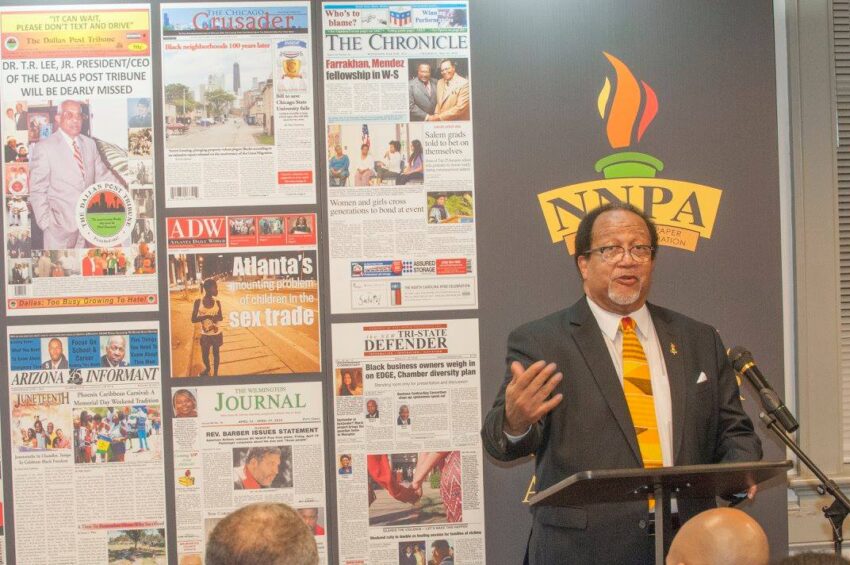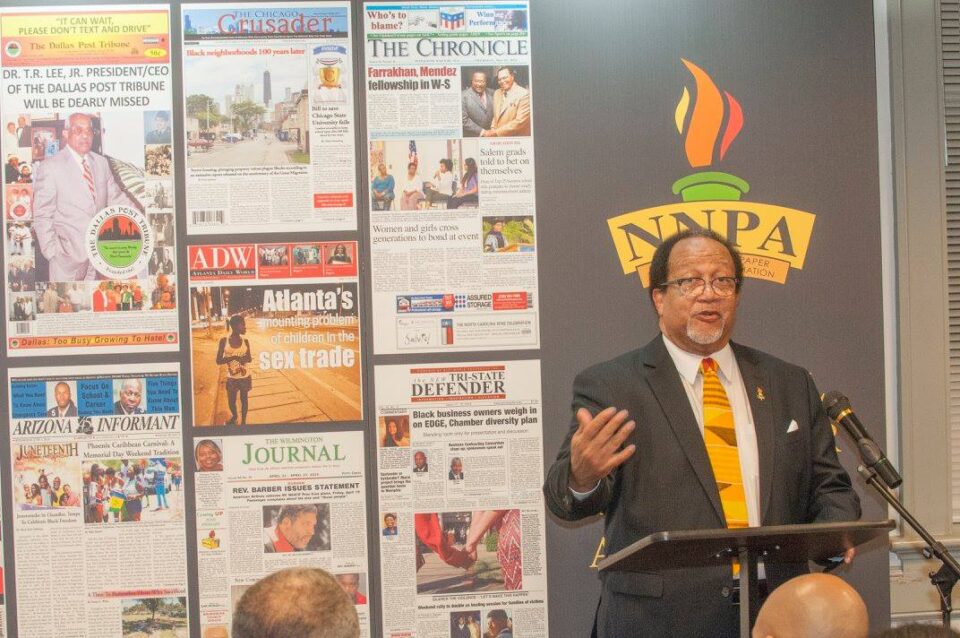Lawsuit Seeks to Invalidate June Election
Originally published Sept. 20, 2019

Lawsuit Seeks to Invalidate June Election
The trade organization representing the black newspaper press has been taken to court by its former chair, Dorothy R. Leavell of the Chicago and Gary (Ind.) Crusader, who asserts that the organization’s president, Benjamin F. Chavis Jr., and his allies worked behind the scenes to disqualify pro-Leavell publishers from voting for her re-election bid. She lost.
Leavell, who says she has been a member of the National Newspaper Publishers Association for about 50 years, is suing to have the election invalidated. She twice led the board, from 1995 to 1999.
According to the lawsuit, filed Sept. 5 in District of Columbia Superior Court, “elections of the executive committee, at-large Board and regional Board members were held” at the group’s June 28 annual meeting, held in Cincinnati. “A total of forty-five (45) ballots were cast at the 2019 convention, a nearly fifty (50%) perecent reduction of votes cast in 2017 and consisting of just fifty (50%) percent of the 2019 dues paying members of NNPA. . . .
“Ms. Leavell received only nine (9) votes and lost her seat as Chairperson of the Board to [Karen] Carter-Richards by a vote of thirty-two (32) to nine (9). . . .”
At the time, Chavis told Journal-isms that Richards had “won handily” but did not disclose the vote totals.
Carter-Richards is the publisher of the Houston Forward Press and was the board’s first vice chairman.
Attorney A. Scott Bolden of the Reed Smith law firm, who represents NNPA, did not respond to a request for comment. The lawsuit said that “on June 3, 2019, Leavell sought to terminate Reed Smith’s representation.”
Chavis was elected interim president and CEO of NNPA in 2014 (scroll down), and later shed the “interim” title. He was described then as “a global business leader, educator, and longtime civil rights activist.”
Chavis was also a member of the Wilmington 10, pardoned in 2012 after being falsely convicted and imprisoned in connection with a racial disturbance in Wilmington, N.C., in 1971.
However, as Bob Geary wrote in 2014 for Indie Week in Durham, N.C., “he was fired as national director of the NAACP in 1994 and, after joining the Nation of Islam and serving as second-in-command to its leader, the notorious Louis Farrakhan, left that position under a cloud too. In each job, a female associate accused Chavis of sexual harassment. Chavis denied their charges, but each woman was paid — by the NAACP and NOI — to settle her claims.”
No such issues have arisen publicly during Chavis’ tenure at NNPA. Still, according to the lawsuit, Leavell asked for Chavis’ resignation, citing “unauthorized signing of NNPA checks, and his failure to seek Board approval on matters requiring such.” She called for “a forensic audit of the 2018 finances.”
According to the suit, Chavis, assisted by board treasurer Janice Ware of the Atlanta Voice, worked to undermine and defeat Leavell. At one point, Ware issued notices that 42 “Class A” members, representing more than 44 percent of the membership, would be “decertified” for voting purposes even though they had paid their membership dues, according to the suit.
Leavell is joined in the legal action by the San Franisco-based California Voice and its publisher, Amelia Ashley-Ward. She ran for an at-large board seat.
In August, board member Carole Geary, publisher of the Milwaukee Courier Newspaper and a Leavell supporter, was awarded a temporary restraining order reinstating her as a regional board member. NNPA had “unilaterally and illegally terminated Geary’s membership as a Board member,” according to the suit.
Denise Rolark Barnes, publisher of the Washington Informer whose tenure as NNPA chair ended when she was defeated for reelection by Leavell in 2017, told Journal-isms after the recent election that “some members believed we were standing still if not moving backwards.”
Key issues for the publishers are getting more of them online, gaining more advertisers and partnerships and becoming more engaged with social media, video and other platforms, Rolark Barnes said then. The roots of the black press go back to the founding of Freedom’s Journal in 1827, in which Samuel Cornish and John B. Russwurm declared, “We wish to plead our own cause. Too long have others spoken for us.”

